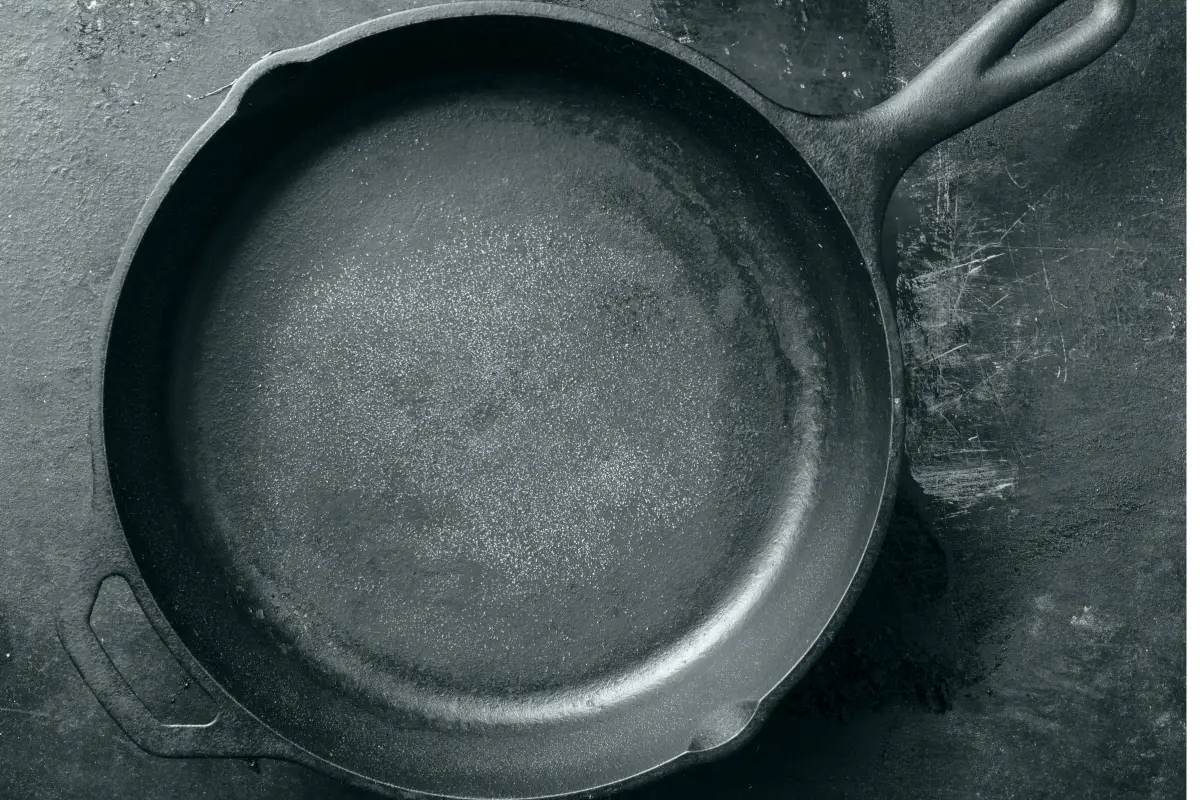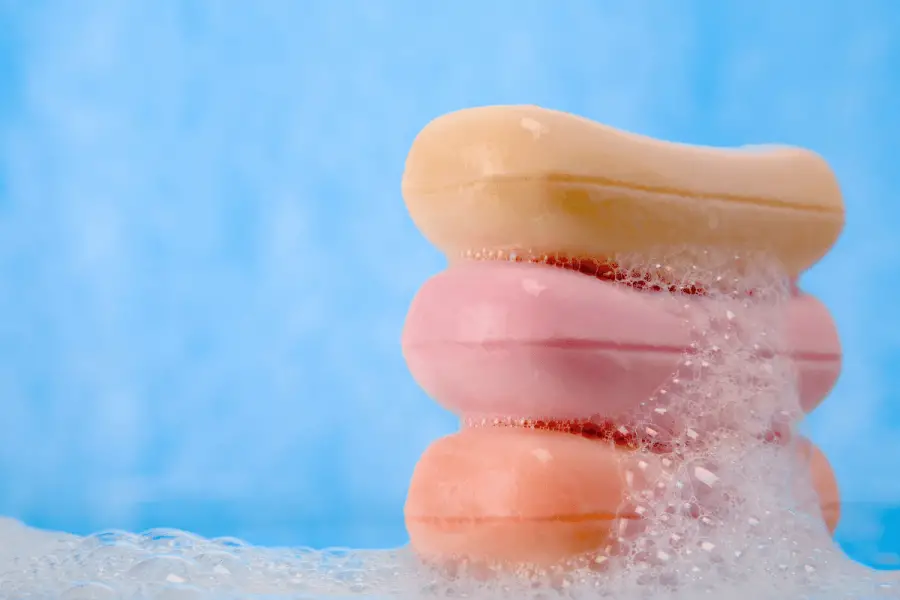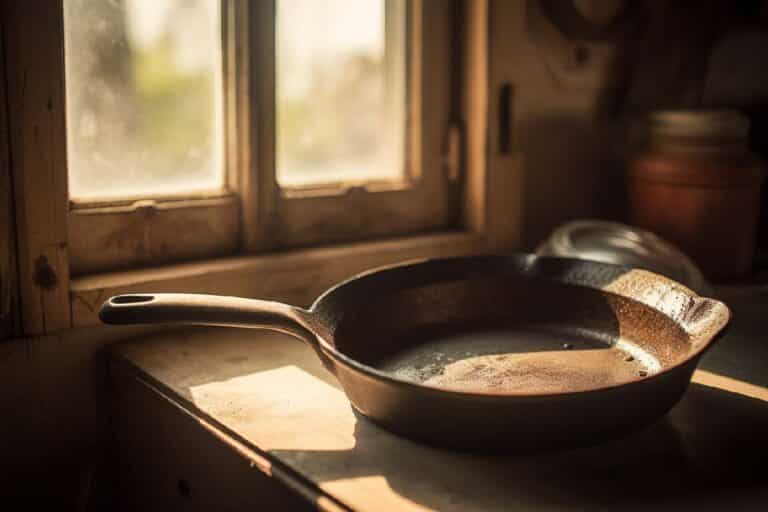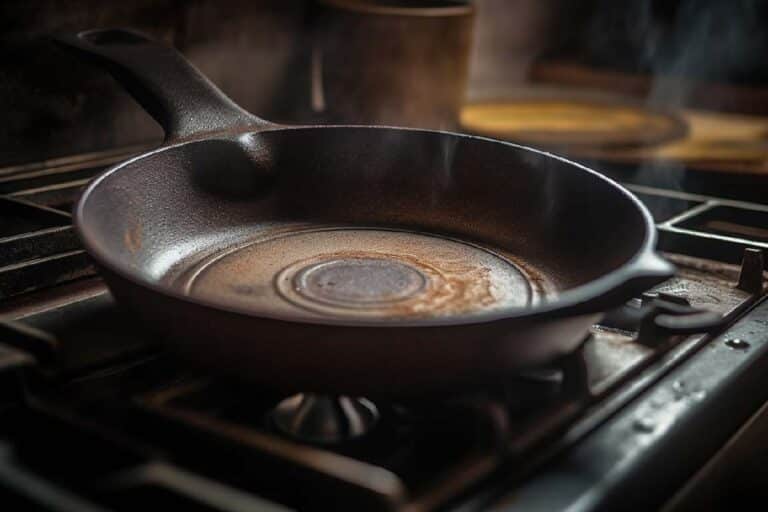Why Do I Have White Spots on My Cast Iron Skillet?

Most cast iron skillets today are manufactured with a clear, enameled surface, so white spots on your pan are most likely the result of mineral deposits.
This is because cast iron pans require some oil or fat to prevent food from sticking to them as you cook. The more you use it, the more this fatty residue builds up. It ultimately leads to mineral deposition via heat and time. The best way to avoid this is to season your cast iron skillet correctly.
Why do mineral deposits form on cast iron?

Well, it’s because you are cooking with it, plain and simple. The more you cook with it, the more the mineral deposits will develop, especially if the seasoning is thin as thin seasoning will allow more pores to be open up to minerals.
Mineral deposits can also come from the water, so they can form whenever you wash your cast iron pan out.
Removing white spots from your cast iron skillet

First, it is essential to understand that these mineral deposits prevent the pan from being seasoned and ultimately will prevent it from being used.
So, the first step would be to clean your cast iron pan with soap and water. This will remove the mineral deposits and open the pores back up so that new oil can penetrate the surface better and create a better layer seasoning.
After you have cleaned your skillet, make sure to dry it entirely before heating it again.
Finally, re-season your cast iron cookware, I advise re-seasoning your cast iron cookware a few times in a row to build up a good layer of seasoning that fills all the pores of your cookware.
Tips to prevent white spots on cast iron cookware

Knowing the different tips to prevent white spots forming on your cast iron skillet will stop them forever. So let’s get started.
1) Acidic foods
Acidic foods will contribute to the wearing away of your cast iron seasoning, over time as your seasoning wears away, pores will free up for mineral deposits to collect in, eventually forming white spots.
My advice is to reduce the amount of acidic foods you cook, and if you do need to cook some, then have another pan dedicated for them.
2) Dying thoroughly
Since water contains mineral deposits, it’s crucial to dry your cast iron cookware thoroughly.
If you don’t dry your cast iron thoroughly, mineral deposits will build up overtime and cause white spots.
Also not drying thoroughly can cause rust, and rust can destroy your cast iron cookware.
3) Reduce cooking oils
Cooking oils contain mineral deposits, so reducing the use of them will reduce the chance of white spots forming.
If you have seasoned your cast iron pans correctly, you shouldn’t really need any cooking oils for cooking.
So if you find your food constantly sticking to your cast iron pan without the use of cooking oils, then it’s time to re-season your cast iron pan.
4) Maintain seasoning
Maintaining your cast iron seasoning is crucial for preventing white spots on cast iron, if your seasoning isn’t completely covering your cast iron pan, then pores will be free for mineral deposits to form.
So maintaining your seasoning is the best way to prevent white spots forming on your cast iron skillets.
My cast iron pan smells like metal?

If your cast iron pan is beginning to smell like metal, this is because the seasoning has worn away and mineral deposits have began to form.
Mineral deposits will begin to corrode your cast iron cookware and start releasing fumes whilst it’s being heated, and this will give off the metallic smell.
To get rid of this, clean your cast iron thoroughly and strip the entire layer of seasoning off and this will also remove the mineral deposits, then re-season your pan thoroughly to prevent any more mineral deposits forming.
What is best oil to season cast iron?
As we have established, re-seasoning your cast iron pan is probably the next move to fixing your issue.
But what’s the best oil to season it with?
Well, there’s a few, however the best oil for seasoning cast iron is definitely flaxseed oil.
It contains a high amount of polyunsaturated fats which allow it to bond with the cast iron much better and fill those pores! It also has a very low smoking points compared to other oils, which means it will begin to bond much quicker.
You can read more about it more in-depth in our “best oil for seasoning cast iron” guide.

